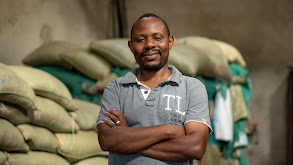
Juste Picasso Nduwayo, the young coffee farmer who is changing the coffee game in Burundi Juste Picasso is a Burundian YALI RLC Kenya Alumni , cohort 12 and he is a coffee farmer and producer with more than nine years of experience in countries like Burundi, #Tanzania, #Uganda and #Malawi. He is the co-founder and Managing Director of Burundi Seeds Specialty(BSS Bdi) since July 2017. “BSS Bdi is a specialty coffee business whose primary functions are, farming, breeding, acquiring coffee, processing and selling. We also have a washing station named “UMUCO coffee washing station” and both of them are located in #Muruta in the #Kayanza province”, tells us Juste Picasso Coffee farming is a very sustainable business, connects different countries and is profitable both to the farmers and the country’s economy. This is what motivated Juste Nduwayo, Zephyrin Banzubaze and Jeremie Nakimuhana to start BSS Bdi. As a company in the agribusiness, they fac...

